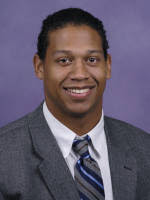Hafferkamp, Russ. (2009). Careerball: The sport athletes play when they’re through playing sports. Charleston, SC: BookSurge Publishing. http://www.careerball.net/
The quandary that many athletes face when their athletic careers end is that much of what has led to their success all of their lives, and the activity(-ies) that has consumed their lives can threaten to stall or compromise a successful transition into a career. The author of Careerball advises former athletes to keep their heads up, work as hard as they can, and success will be theirs in the end.
A true statement, almost without exception. However, one doesn’t need to be a former athlete to appreciate this advice, or profit from it. Much of the advice that the career coach offers in his self-published tome is so widely applicable that it is a book-long challenge to identify what Careerball actually is. It doesn’t keep the book from being an enjoyable and at most times instructive read, but I was left wanting when it came to the book’s promise to identify a particular or unique way that former athletes could successfully approach career development based on character traits they develop as athletes (that somehow, non-athletes cannot develop or share).
Hafferkamp offers sage advice, interesting considerations, and useful perspectives for student-athletes who are at a crossroads in their lives. He is the CEO of a consulting firm that specializes in career counseling for former athletes. Sections on the unique perspective that an athlete develops , and how that shapes perspectives in ways that can be as beneficial as they are deleterious were engagingly written. Chapters 11 and 12 focus on identity formation and transitions unique to high school and college athletics, and serve as an excellent precursor to an advice section that cites survey data from 300 former professional and collegiate athletes about athletic experiences and career development. Sharp transitions and excellent antitheses appear sporadically (e.g. his suggestion that athletes’ focus on their craft makes them determined and mentally strong, but can also keep them from exploring other aspects of their development). Chapter 4 focuses, at one point, on stereotype threat research, which is very interesting.
However, platitudes dot the landscape of the book. Statements such as “athletes are good at setting goals,” and “(they) don’t lose hope,” and claims that student-athletes are competitive, work well with others, and are loyal are so widely applicable that one does not have to be an athlete to identify with them. Additionally, entire chapters that one suspects will be aimed specifically at a niche, selected audience instead reaches out to a very wide one, instead (chapters on “Personal Interests,” “Time Management,” and networking and mentorship) are not without merit, but also not germane specifically to student-athletes.
An interesting read, it is framed unfortunately as a book for former athletes on the subject of career development instead of as a book on career development that highlights ways that athletes may or may not benefit from their athletic identities. The book’s shining moments are when his tone is reflective, even autoethnographic (as an athlete and father of an elite athlete) and less like self-help.
Subscribe to:
Post Comments (Atom)





No comments:
Post a Comment